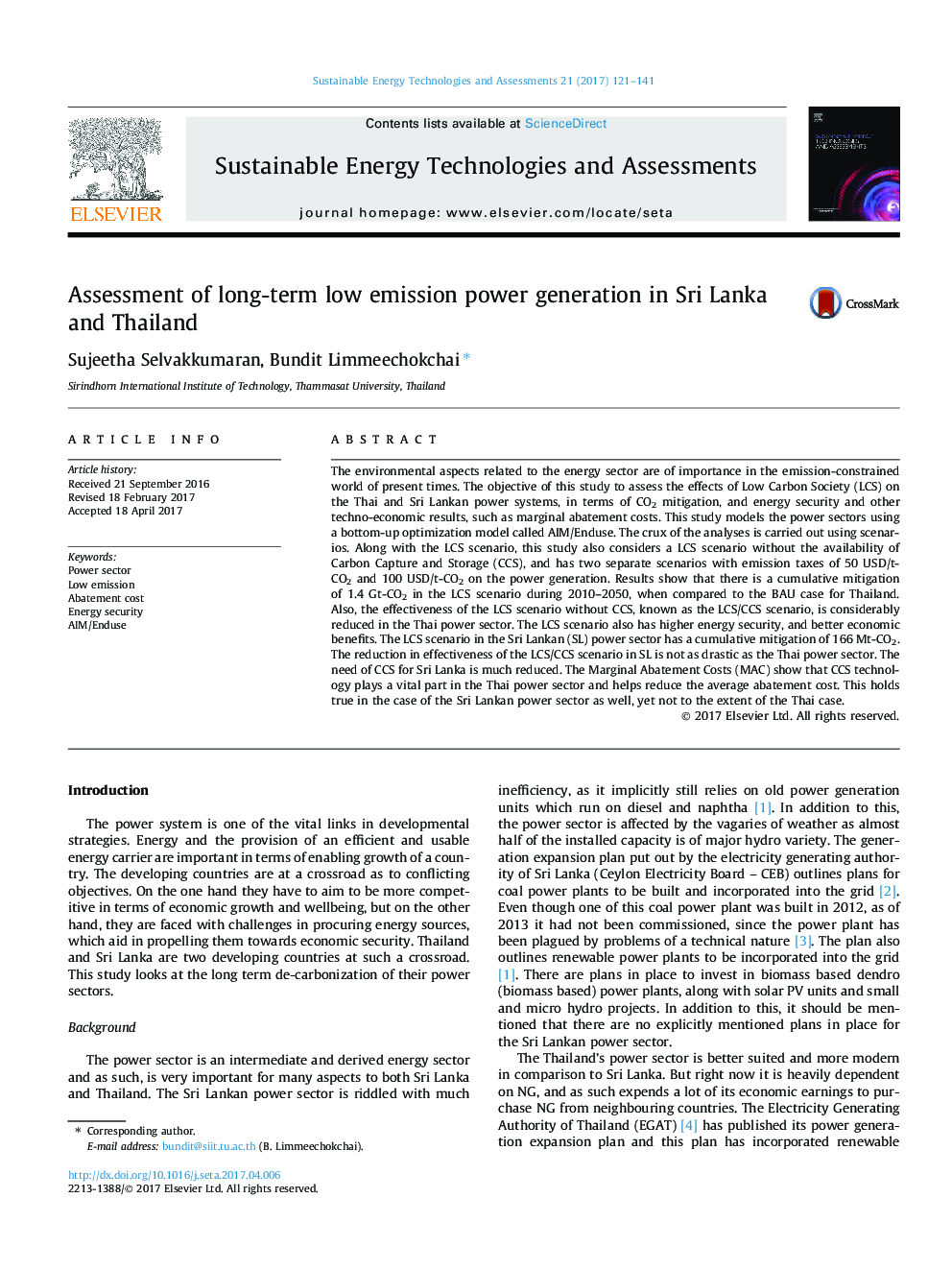| Article ID | Journal | Published Year | Pages | File Type |
|---|---|---|---|---|
| 5483456 | Sustainable Energy Technologies and Assessments | 2017 | 21 Pages |
Abstract
The environmental aspects related to the energy sector are of importance in the emission-constrained world of present times. The objective of this study to assess the effects of Low Carbon Society (LCS) on the Thai and Sri Lankan power systems, in terms of CO2 mitigation, and energy security and other techno-economic results, such as marginal abatement costs. This study models the power sectors using a bottom-up optimization model called AIM/Enduse. The crux of the analyses is carried out using scenarios. Along with the LCS scenario, this study also considers a LCS scenario without the availability of Carbon Capture and Storage (CCS), and has two separate scenarios with emission taxes of 50 USD/t-CO2 and 100 USD/t-CO2 on the power generation. Results show that there is a cumulative mitigation of 1.4 Gt-CO2 in the LCS scenario during 2010-2050, when compared to the BAU case for Thailand. Also, the effectiveness of the LCS scenario without CCS, known as the LCS/CCS scenario, is considerably reduced in the Thai power sector. The LCS scenario also has higher energy security, and better economic benefits. The LCS scenario in the Sri Lankan (SL) power sector has a cumulative mitigation of 166 Mt-CO2. The reduction in effectiveness of the LCS/CCS scenario in SL is not as drastic as the Thai power sector. The need of CCS for Sri Lanka is much reduced. The Marginal Abatement Costs (MAC) show that CCS technology plays a vital part in the Thai power sector and helps reduce the average abatement cost. This holds true in the case of the Sri Lankan power sector as well, yet not to the extent of the Thai case.
Related Topics
Physical Sciences and Engineering
Energy
Energy Engineering and Power Technology
Authors
Sujeetha Selvakkumaran, Bundit Limmeechokchai,
